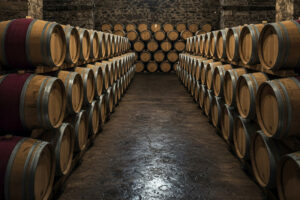“Although they are just suppositions, the news about possible scenarios for EU budget cuts is very disturbing”, said the First Vice President of the European Parliament's Agriculture Commission, Paolo De Castro, following the publication of the post-2020 Commission's budget forecasts, which, according to Ansa, include cuts from 3.4 to 9.7 billion euros in seven years. The text is part of the forecasted documents produced by various General Managements in response to the three main scenarios Brussels proposed in the Communication on the EU's future multiannual budget, which will have to deal with post Brexit.
The first scenario, which is called "reference", applies to a linear 15% cut of the current Pac distributions at current prices; the second repeats this with 30% cuts, while the third is that of status quo. In addition to showing the impact on the coffers of different countries, the General Direction of Agriculture defends the budget of the CAP listing the negative effects on large and small farms, on income stability of farmers and on different sectors, where livestock, grain and protein crops will suffer most.
The text also examines the hypothesis of national co-financing that "would cause strong imbalances between countries", undermining the "single market of agricultural products".
In the hypothetical scenario of a 30% financial participation by countries in spending on direct aid to farmers, the balance would be positive for some net contributors. Theoretical savings in contributions to the CAP budget would exceed the additional costs for co-financing for Italy, Germany and the Netherlands.
This scenario is worrisome, because, De Castro highlighted, “it will be possible to achieve the economic, social and sustainability goals we have set only if there is a strong and adequately funded CAP. In any case, the discussion on the budget will begin in 2018 and our commitment will be to avoid changes in the agriculture budget and especially that the CAP is not seen as the piggy bank to draw from. It is not fair for farmers to have to pay for new European policies”.
It’s not all negative on the European agricultural front, said De Castro, “simplifying, strengthening risk management policies and measures for young farmers continue to be at the top of the list of goals and the concept of flexibility is the leverage that accompanies them.
Commissioner Hogan's message”, continued De Castro, “launches clear and consistent signals on the approval of the agriculture part of the Omnibus Regulations. For example, the paradigm shift on the current, ineffective, greening structure, calls for the transition from a penalizing logic towards farmers, to a system of reward that encourages more sustainable practices, reduced environmental impact and targeted territorial specifics of each Member State. Finally, even though technically there is not enough time to approve the CAP reform by the end of this parliamentary term, it is necessary to start thinking about how major subsidiarity granted to Member States does not lead to distortions on the internal market and the consequent re-nationalization of the Common Agricultural Policy”.
Copyright © 2000/2026
Contatti: info@winenews.it
Seguici anche su Twitter: @WineNewsIt
Seguici anche su Facebook: @winenewsit
Questo articolo è tratto dall'archivio di WineNews - Tutti i diritti riservati - Copyright © 2000/2026






































































































































































































